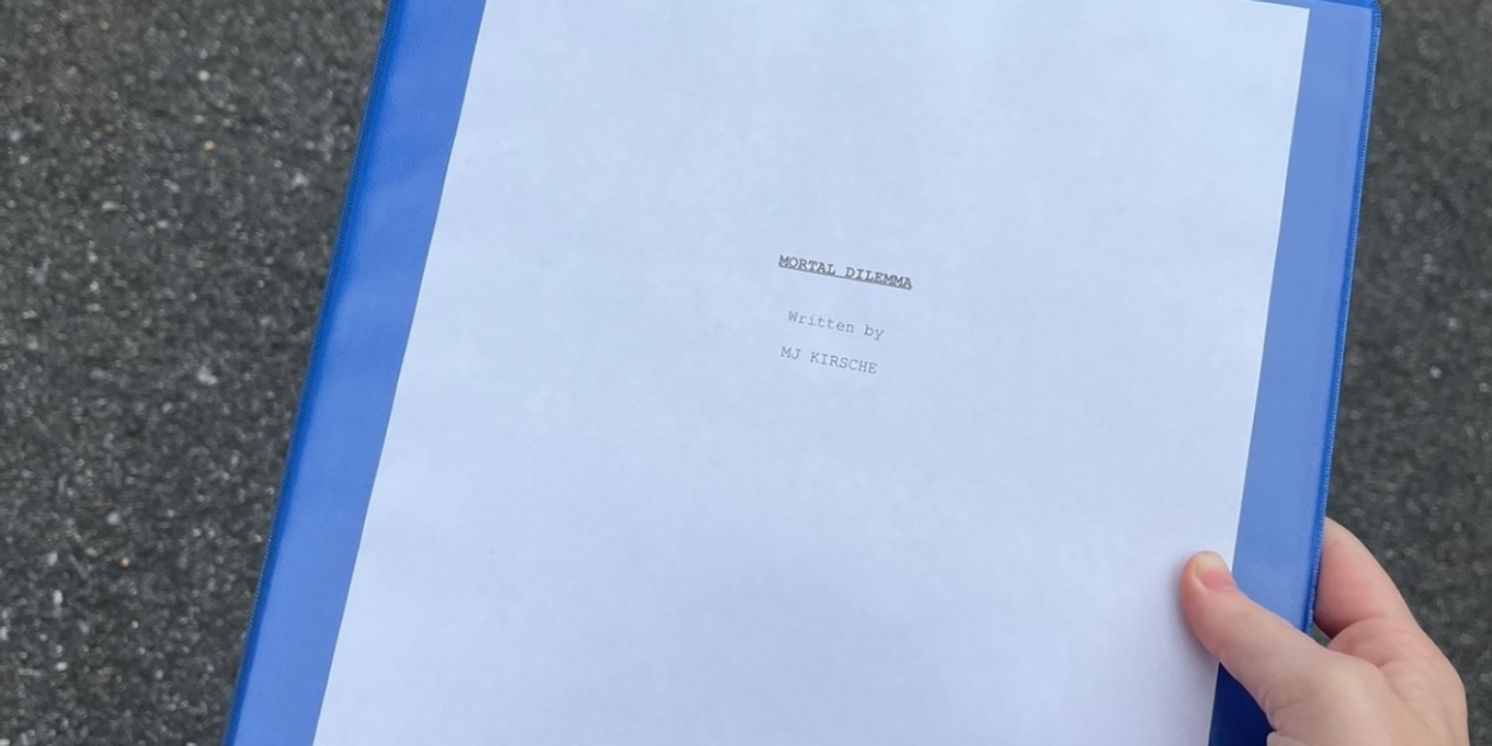Student Blog: HOW Hard to Be the Bard? Pt 1 – The Plan
Playwriting tips and tricks from a young writer.

In 2018, as a freshman in high school, I tried my hand at writing a play for the first time. I’d always loved to write, and recently became serious about performing– it seemed natural to take a shot at combining the two things I was passionate about. It took trial and error, but four years later, I was announced as one of four winners of Trinity Repertory Company’s “Write Here! Write Now!” 2022 Playwriting Contest, for my short play “Mortal Dilemma”, which was staged at their theater in Rhode Island. Winning this contest truly changed my life, and really motivated me to pursue playwriting more seriously as well, having only been writing plays since starting high school. Now in college, and having had the opportunity to stage and direct “Mortal Dilemma” at my school, I’ve had lots of my theatre major peers ask me about my writing process and tips on how to create and perfect their own pieces. In this entry I will cover the beginning steps to creating a strong written piece, and how to set up your play (or musical) for success!
The first step (in my personal experience) to writing a play is having a strong outlined premise. In simpler words– you should know what you’re talking about. Is it a play? Is it a musical? How long are you aiming for it to be? Who are our characters, what is their journey, and why should we care about it? While these might sound elementary to ask, they are all very important answers that you should at least have a vague (or better yet– a strong) idea of before you begin writing. For every piece I work on, I make one Google Doc for the script itself, and another one strictly for planning the show and mapping out the plot, listing songs, scenes, and characters. Knowing these details before you go in will make it so much easier to go back to and help keep scenes detailed, accurate, and on track with the story.
Going off of that, once you have the basic outline and premise of the story, start asking yourself the deeper questions to develop the real meat of the work– what is the purpose of this piece as a whole? What’s the reason for writing and sharing it? You should always have a good if not lengthy answer to the question “Why are you writing this?” Not every piece has to be about making a point, as lots of plays and comedies like Noises Off and The Play That Goes Wrong exist to bring joy and laughter to the audience, and are extremely successful. However, if you are looking to make a piece with a specific poignant message, you need to have a strong execution that the audience can understand. If your piece is a commentary of some kind, you’ll need relevant relatable characters with a memorable story. A huge part of the way I do my own writing is by bouncing ideas and getting the opinions of people I know to see how my piece might be perceived by an audience– so ask your friends what they think of your ideas! Don’t be afraid to run things by people to see how different ideas or plots mind land, because the reality is, that’s the most important part of a piece: how it resonates with the viewer.
Another super important thing is doing your research. This is the less fun part, but it can be the most important piece in the authenticity of your written work. Hadestown wouldn’t be a smash success if its plot was inaccurate to the original myth. Hairspray wouldn’t be so popular if it didn't correctly represent the 60s. You have to know the details of your year, setting, and events, if your piece is modern or period– because God forbid your main character takes a phone call in a year they weren’t invented yet. For example of doing event research, in my play “Mortal Dilemma”, the story builds up to one of the characters having a heart attack. So, I researched symptoms that occur before a heart attack to drop into the scene that would foreshadow the event and build up to the climax. Little things like this are big when it comes to keeping your plot believable, and will help the audience trust the authenticity and consistency of your piece.
Planning a solid written piece takes a good amount of time to get going, but once you’ve done all the behind-the-scenes work, you’ll have a much more solid foundation than just having a thought and spilling it out. Once you’ve done the bulk of making sure you’ve decided on a solid piece that could really land with an audience, check in with your planning Google Doc and take a stab at your script Doc! In my next entry, I’ll cover tips and technicalities when it comes to crafting a solid script and getting your piece polished and performance-ready. Go check out part two – “The Script!”
Videos


